Mary Stegmaier is an Assistant Professor, and Ashley Price is a doctoral candidate, at the Truman School of Public Affairs at the University of Missouri.
Many perceive Missouri as a “red” state for its Republican vote in recent presidential elections. Yet in statewide races, the party that wins depends on political tides, the issues of the day, the appeal of the particular candidate, and voter turnout. Our state has Republican super-majorities in both chambers of the General Assembly, yet five of our six state-wide elected positions in Missouri government are held by Democrats including Governor, Secretary of State, and Attorney General. In the U.S. Senate, our representation is split by party. Claire McCaskill (D) retained her seat in 2012, and Roy Blunt (R) is battling to keep his seat this November. Earlier this year, Blunt looked well-positioned for reelection, but Jason Kander (D), the current Missouri Secretary of State, has proved a formidable challenger. With less than a month to Election Day, the national parties have identified this race as one that could determine control of the Senate.
The Presidential campaign has impacted the Missouri Senate election in varied ways. Neither Hillary Clinton nor Donald Trump has spent much time campaigning in Missouri, but both the Blunt and Kander campaigns are emphasizing their opponent’s support of their party’s nominee. Blunt has continued to endorse Trump even when a number of his GOP colleagues have said they will not be voting for him. However, the anti-establishment message of Trump’s campaign is at odds with Blunt’s 20 years of service in Congress and the work that his family members do as Washington lobbyists. This is something that Kander has tried to capitalize on. At age 35, this is his first run for Congress. He’s the Washington outsider in this Senate race. Kander’s frequently-used campaign line enforces this point: “We won’t change Washington until we change the people we send there.” Yet, Blunt has also worked to capitalize on the anti-establishment message by tying Kander’s support to Clinton and President Obama as a vote for the Washington status quo.
Economic concerns have been the key issue addressed by both candidates. Each has adopted positions on economic growth and improving the lives of Missourians that are consistent with their party’s policy proposals and the voters they seek to attract. Blunt’s positions include reducing taxes and flattening the tax system, promoting policies that support small business, and curtailing regulations—especially environmental and climate-related rules. Kander proposes reducing taxes on the middle class, increasing the minimum wage, and focusing on ways to eliminate the gender wage gap. He supports some environmental regulations as long as they also account for businesses. Both he and Blunt oppose the Obama administration’s water rule because of its impact on Missouri farmers.
Immigration has also featured prominently in this campaign, as it has in the Presidential race. Blunt has advocated for strict enforcement of immigration laws and efforts to secure the border. Kander has argued that the current system needs to be fixed and says he would support comprehensive immigration reform. Blunt has not supported Obama’s executive amnesty or any pathway to citizenship for those illegally in the country. Kander has spoken about supporting pathways to citizenship, but he is against the use of presidential executive order to achieve such policy change.
Gun ownership issues appear in a number of campaign ads for both candidates. Kander’s political ad in which he assembles a rifle while blindfolded, emphasizes his military experience and makes the point that he supports both the second amendment and the expansion of background checks. Blunt has earned an A-rating from the NRA for his votes in Congress, and the gun lobby is spending heavily in support of his campaign. The NRA has spent over $1.5 million on advertising in support of Blunt, and the NRA Institute for Legislative Action, the lobbying arm of the NRA, has spent close to $250,000 on ads opposing Kander.
While other issues including health care, student loans, and abortion have been raised on the campaign trail, there has been surprisingly little attention to issues of policing and racial inequality that events in Ferguson, Missouri, brought into the national spotlight. It is true that aspects of these issues are best addressed at the state or local level, but national leaders have a role to play as well, especially since communities around the country are facing similar challenges. Federal legislation can be used to address police training, accountability, independent investigations, criminal justice reform, requirements for police departments to receive federal funds, and economic policies for communities of color.
Both candidates have been very successful in fundraising and with the election a near toss-up, many outside groups are spending in the state as well. Blunt has raised over $12.6 million in total. Kander’s fundraising has trailed behind Blunt’s (totaling about $6.5 million raised), but in this 3rd quarter, he out-raised Blunt by more than $1.2 million. The biggest outside spenders in addition to the NRA and NRA Institute for Legislative Action, have been the conservative SuperPAC The Senate Leadership Fund ($4.1 million), the conservative PAC The National Republican Senatorial Committee ($2.9 million), the liberal PAC End Citizens United ($1.8 million), and the liberal PAC Democratic Senatorial Campaign Committee ($1.4 million). The total outside spending for this Senate race from PACs and other organizations has been over $16.5 million, with more spending to come as we near Election Day. For reference, in the 2012 Senate race between Claire McCaskill and Todd Akin, outside spending totaled $12.9.
This election campaign will hinge on who turns out to vote on Election Day—specifically African American, pro-gun rights, and anti-establishment voters. The media coverage of the presidential race has shown how important voters’ emotions about their circumstances are driving their interest in the coming election—this also exists in Missouri. Whether voters turn out to vote will center on who is able to best tap into this emotion.
Mobilizing voters in communities like Ferguson will help Kander. Recently, U.S. Senator Cory Booker campaigned with him in North St. Louis County, where Booker emphasized the importance of getting African Americans out to vote. Blunt’s chances will be enhanced by the gun lobby’s efforts to get their supporters invested in his reelection. Also, as we noted, the anti-establishment message could hurt Blunt at the polls, but conservative opposition ads painting Kander as an extension of the policies of Hillary Clinton and Barack Obama could give Blunt the votes he needs.
Finally, the national election looms large over this Senate campaign. While a number of Republican leaders have declared that they will no longer vote for Trump, Blunt has reiterated his support for him. If Missouri voters turn away from Trump because of recent revelations, this will inevitably mean losses for Blunt. Perhaps these voters will turn to Kander, but there are three other candidates running from the Libertarian, Green and Constitution Parties who could also benefit from the dynamics in the presidential contest.
The Brookings Institution is committed to quality, independence, and impact.
We are supported by a diverse array of funders. In line with our values and policies, each Brookings publication represents the sole views of its author(s).

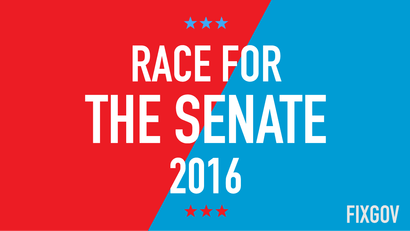
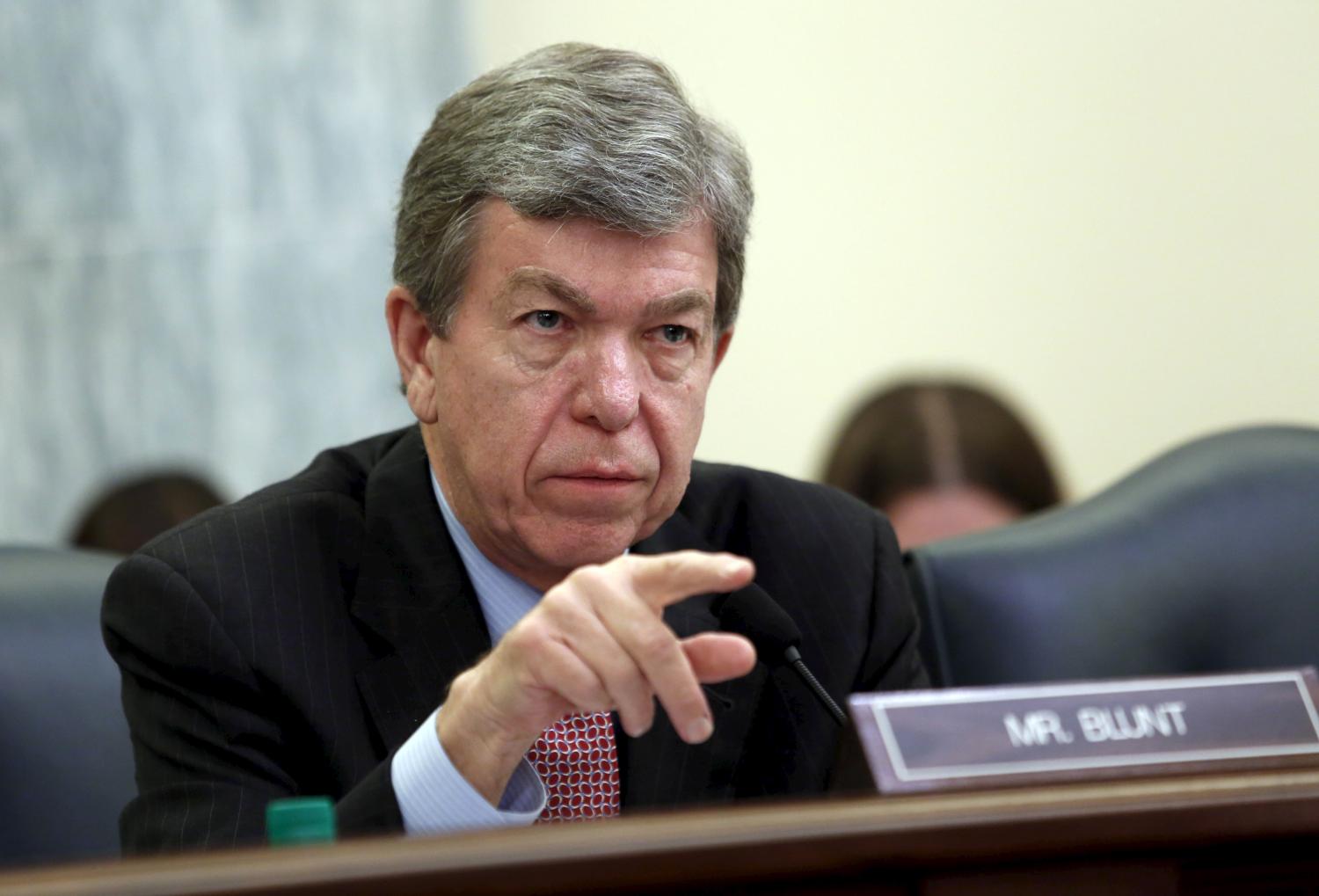
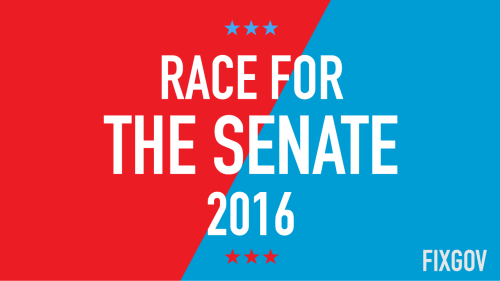
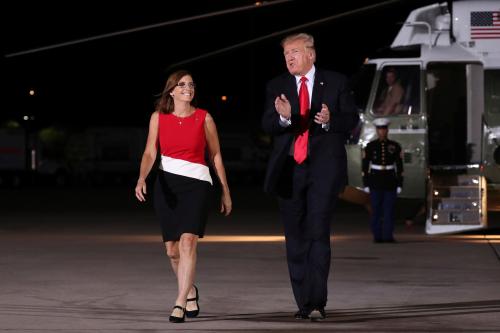
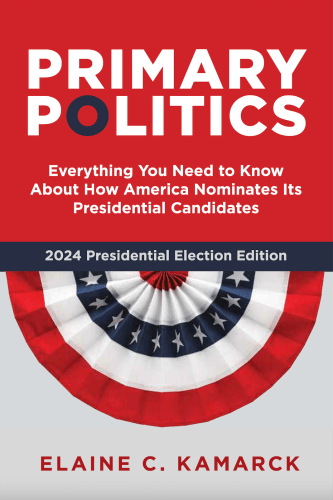
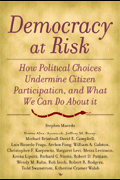

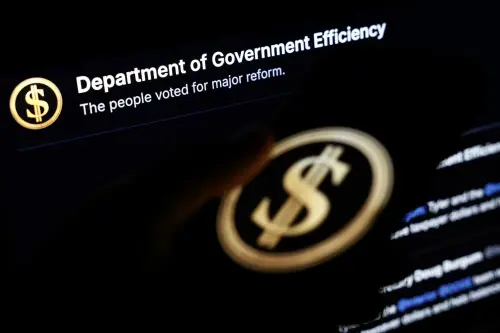
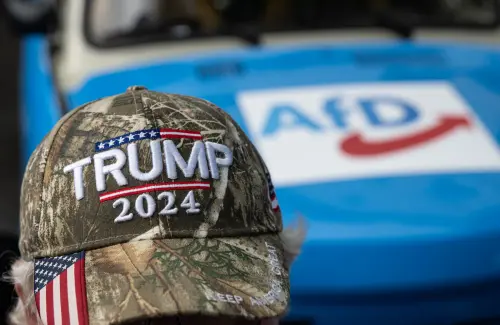
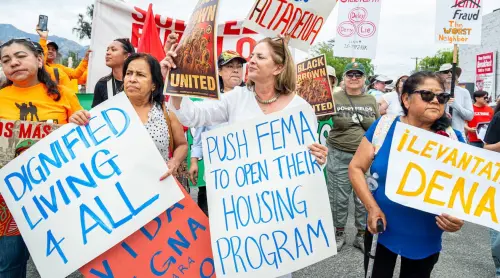
Commentary
Race for the Senate 2016: Key issues in Missouri
October 25, 2016